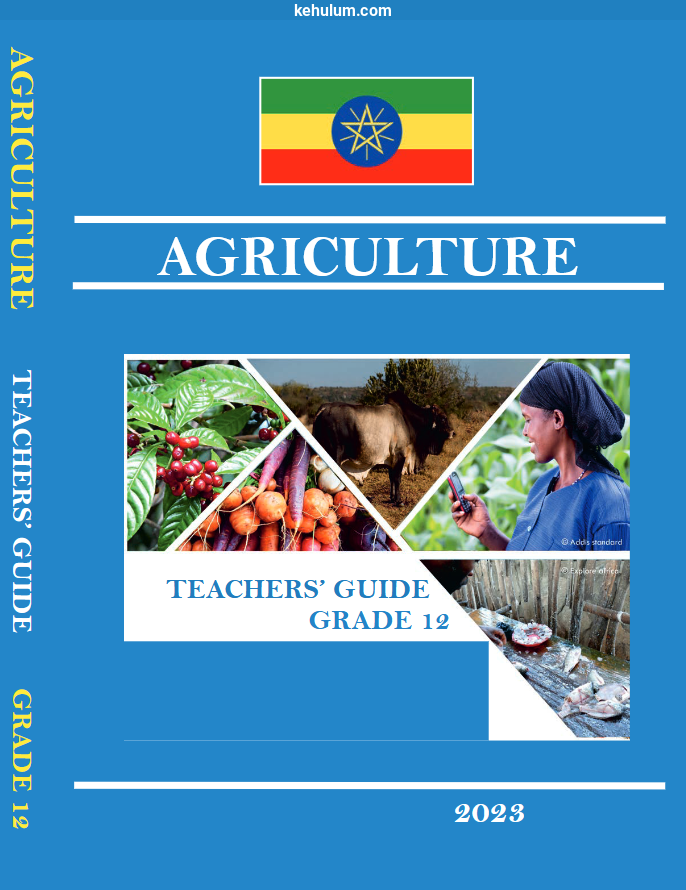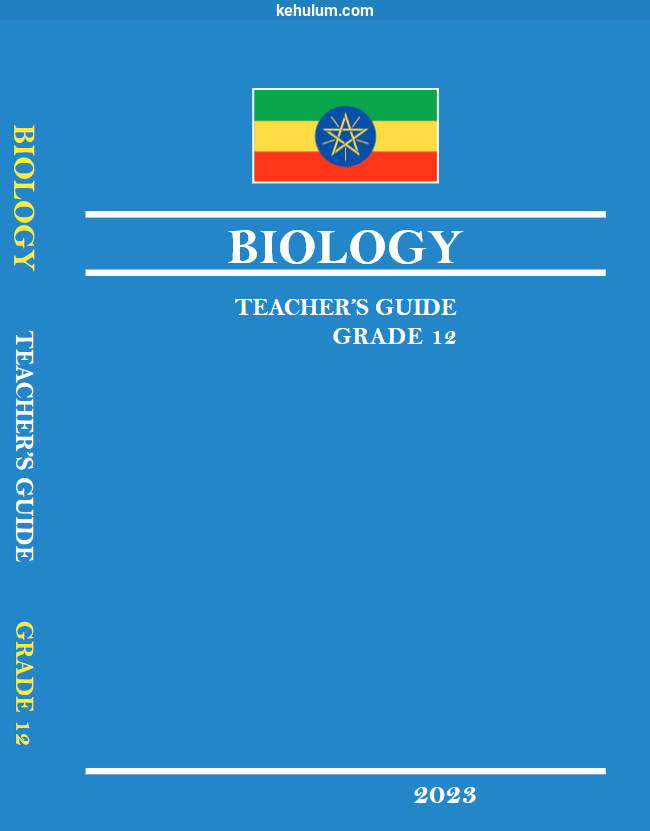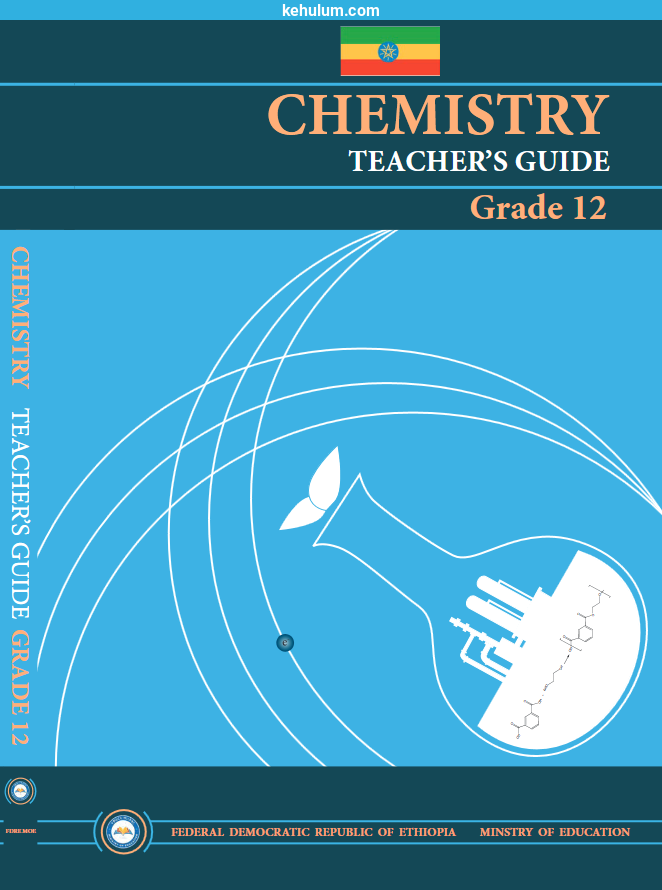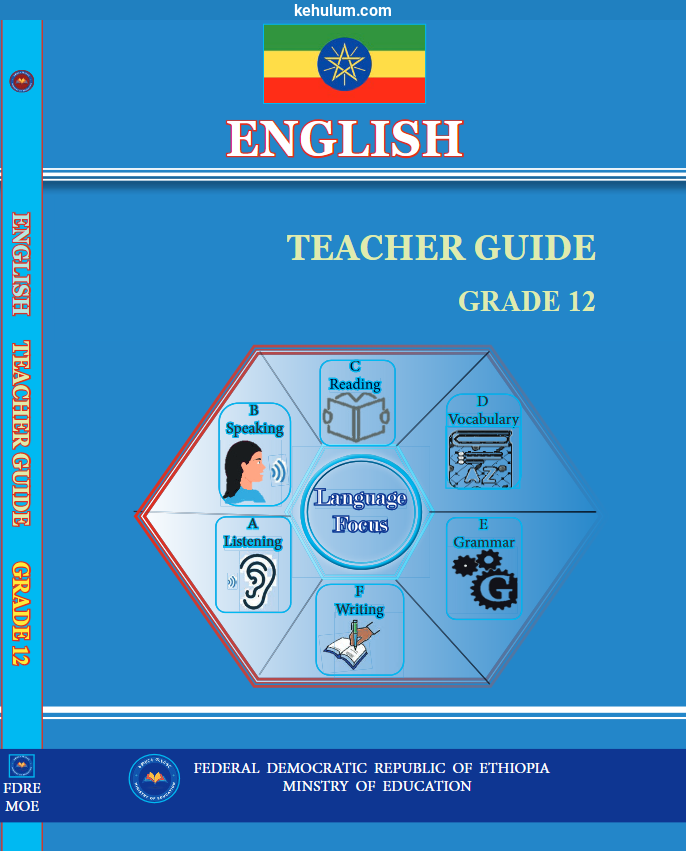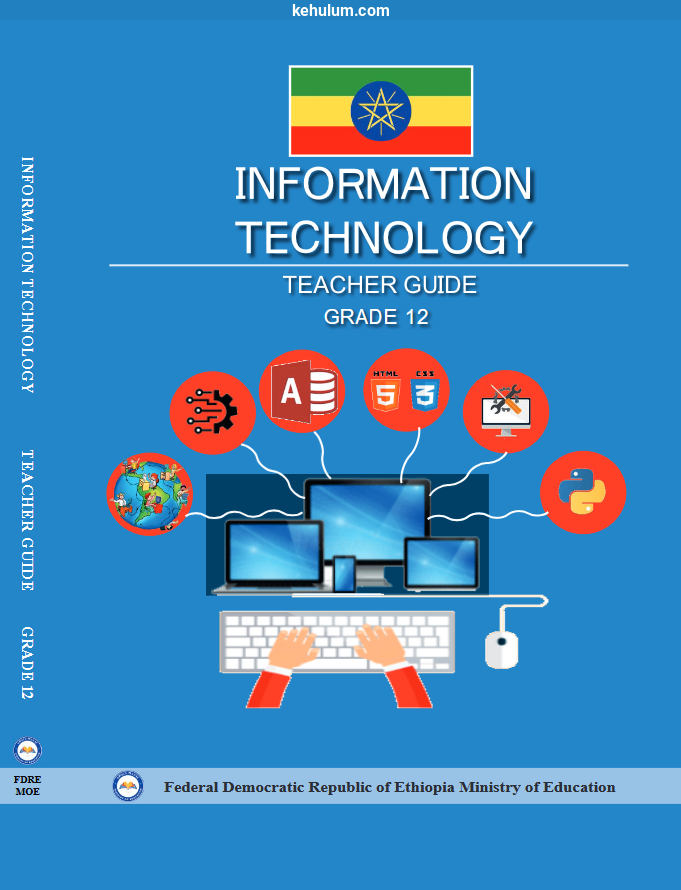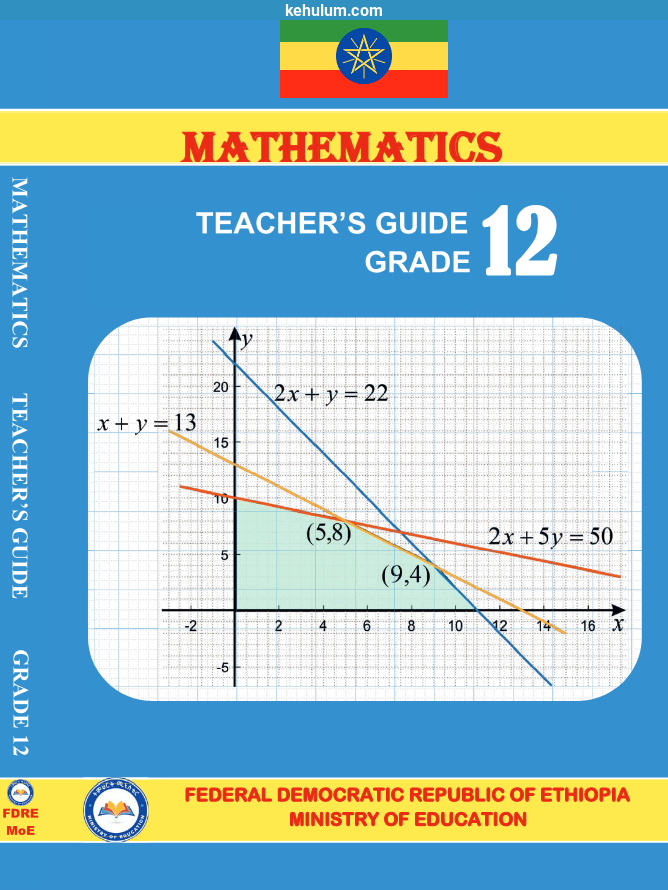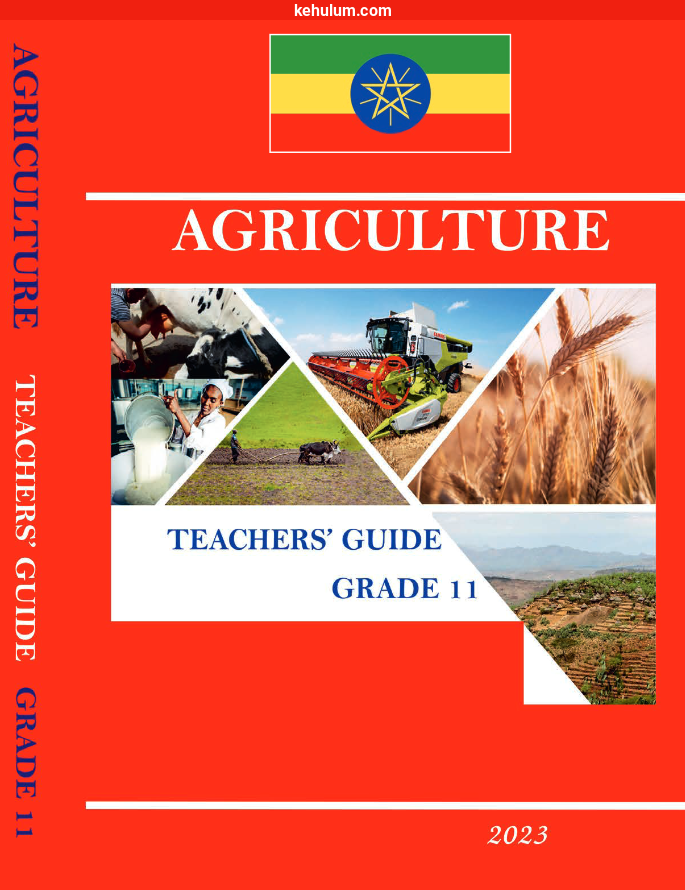Advertisement
Related grade 12 new curriculum Teacher's Guide
Download the Ethiopian New Curriculum Grade 12 Agriculture Teacher’s Guide PDF
The Ethiopian New Curriculum Grade 12 Agriculture Teacher’s Guide, published in 2023 by the Ministry of Education, Ethiopia, is an essential reference for instructors teaching agriculture at the secondary level. It equips teachers with strategies to deliver lessons on crop production, livestock management, fisheries, apiculture, biotechnology, soil and water conservation, nutrition, food safety, and ICT applications in agriculture. With 17 comprehensive units, the guide combines theoretical knowledge with practical applications, emphasizing Ethiopia’s agricultural development priorities.
Teacher's Guide Summery
- Country: Ethiopia
- Publisher: Published in 2023 by the Ministry of Education, Ethiopia
- Subject: Agriculture (Teacher’s Guide)
- Grade: 12
- Curriculum: New
- Type: Teacher’s Guide
- Total Units: 17
- Total Pages: 293
- File Size: 4.2 MB
- Writers: Yohannes Batiso, Haile Welearegay (PhD)
Chapers overview
Ethiopian New Curriculum Grade 12 Agriculture has 17 units. They are:
- Vegetable Crops Production and Management
- Fruit Crops Production and Management
- Root and Tuber Crops Production and Management
- Coffee, Tea and Spices Production and Management
- Introduction to Plant Biotechnology
- Beef Cattle Production and Management
- Sheep and Goat Production and Management
- Camel Production and Management
- Poultry Production and Management
- Fishery Production and Management
- Beekeeping
- Nursery and Plantation Technology
- Basics of Agro-Forestry Systems and Practices
- Soil and Water Conservation
- Gender and Human Nutrition
- Safe Food Production and Postharvest Handling
- Application of Information and Communication Technologies (ICT) in Agriculture
Unit 1: Vegetable Crops Production and Management
Helps teachers explain the importance, environmental factors, and systems of vegetable production in Ethiopia, with management principles for sustainable practices.
Unit 2: Fruit Crops Production and Management
Guides teachers on fruit crop classification, propagation, nursery management, orchard techniques, and post-harvest handling, including floriculture.
Unit 3: Root and Tuber Crops Production and Management
Focuses on classification, importance, challenges, and post-harvest handling of root and tuber crops, with emphasis on Ethiopian prospects.
Unit 4: Coffee, Tea and Spices Production and Management
Provides lesson strategies on propagation, field management, and processing of coffee, tea, and spices, integrating economic significance.
Unit 5: Introduction to Plant Biotechnology
Introduces tissue culture and genetic engineering, highlighting their applications and benefits in crop improvement.
Unit 6: Beef Cattle Production and Management
Equips teachers to cover breed selection, feeding, housing, disease management, and meat processing.
Unit 7: Sheep and Goat Production and Management
Covers breeds, feeding, housing, disease control, and production of milk and meat for small ruminants.
Unit 8: Camel Production and Management
Explains camel breeds, feeding, housing, and disease management, with emphasis on milk and meat production.
Unit 9: Poultry Production and Management
Provides teaching content on poultry breeds, feeding, housing, incubation, rearing, disease control, and management of layers and broilers.
Unit 10: Fishery Production and Management
Covers aquaculture basics, fish anatomy, feeding, rearing, culture techniques, processing, and indigenous practices in fisheries.
Unit 11: Beekeeping
Guides teachers on bee biology, hive management, honey production, queen rearing, and protection from pests and diseases.
Unit 12: Nursery and Plantation Technology
Introduces nursery establishment, seed propagation, and plantation management for forestry and crop production.
Unit 13: Basics of Agro-Forestry Systems and Practices
Covers agroforestry systems, classification, species selection, and their significance for sustainable farming.
Unit 14: Soil and Water Conservation
Equips teachers to explain soil properties, erosion causes, conservation methods, and indigenous practices for land management.
Unit 15: Gender and Human Nutrition
Focuses on gender roles in food systems, empowering women in agriculture, and links between gender and nutrition.
Unit 16: Safe Food Production and Postharvest Handling
Highlights food safety hazards, contaminants, and indigenous practices in safe production and storage.
Unit 17: Application of ICT in Agriculture
Demonstrates how ICT supports agricultural production, addressing applications, challenges, and solutions in Ethiopia.
Advertisement
Related grade 12 new curriculum Teacher's Guide
Frequently Asked Questions
When is the Ethiopian Grade 12 Agriculture new curriculum Teacher's Guide published?
The Teacher's Guide was published in 2023.
How do I download the Ethiopian Grade 12 Agriculture new curriculum Teacher's guide PDF for free?
Simply click the download button on the page
Is the Grade 12 Agriculture teacher's guide available for both old and new curriculum?
Yes, kehulum.com provides teacher guides for both Old and New Ethiopian curriculum.
Related new curriculum agriculture Teacher's Guide
Advertisement

